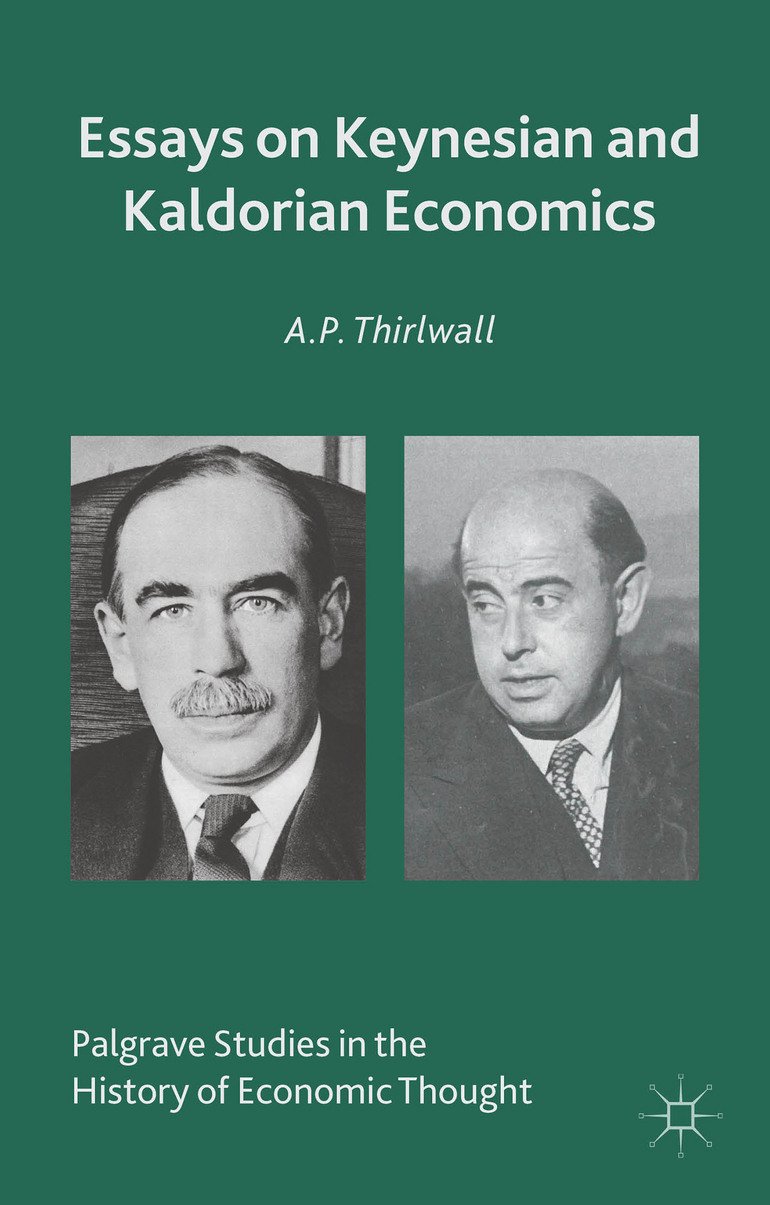An old article, worth your time.
Excerpt:
In the course of his Inaugural Lecture at Cambridge in 1966 on the causes of the U.K’s slow growth rate, Kaldor (1966) presented a series of “laws” to account, for growth rate differences between advanced capitalist countries; he later elaborated these laws in a lecture at Cornell University (1967). These laws, and their interpretation and validity, have been the subject of considerable scrutiny and debate, and Kaldor himself has clarified and modified his own position since their enunciation. The basic thrust of the model consists of the following propositions:1
- The faster the rate of growth of the manufacturing sector, the faster will be the rate of growth of Gross Domestic Product (GDP), not simply in a definitional sense in that manufacturing output is a large component of total output, but for fundamental economic reasons connected with induced productivity growth inside and outside the manufacturing sector. This is not a new idea. It is summed up in the maxim that the manufacturing sector of the economy is the “engine of growth.”
- The faster the rate of growth of manufacturing output, the faster will be the rate of growth of labor productivity in manufacturing owing to static and dynamic economies of scale, or increasing returns in the widest sense. Kaldor, in the spirit of Allyn Young (1928), his early teacher at the L.S.E., conceives of returns to scale as macroeconomic phenomena related to the interaction between the elasticity of demand for and supply of manufactured goods
…
- The growth of manufacturing output is not constrained by labor supply but is fundamentally determined by demand from agriculture in the early stage of development and exports in the later stages. Export demand is the major component of autonomous demand in an open economy which must match the leakage of income into imports. The level of industrial output will adjust to the level of export demand in relation to the propensity to import, through the working of the Harrod trade multiplier:2 the rate of growth of output will approximate to the rate of growth of exports divided by the income elasticity of demand for imports (see Thirlwall, 1979).
- A fast rate of growth of exports and output will tend to set up a cumulative process, or virtuous circle of growth, through the link between output growth and productivity growth. The lower costs of production in fast growing countries make it difficult for other (newly industrializing) countries to establish export activities with favorable growth characteristics, except through exceptional industrial enterprise.
This catalogue of propositions is more or less the full Kaldor model of growth rate differences in advanced capitalist countries …
…
Notes
- Some of the propositions are not as Kaldor originally stated them, but we shall
return to the original argument later. - For an exposition and an elaboration of the Harrod trade multiplier, see Kennedy and Thirlwall (1979) and Thirlwall (1982).
…
References
…
Kennedy, C, and Thirlwall, A. P. “Import Penetration, Export Performance and Harrod’s Trade Multiplier.” Oxford Economic Papers, July 1979.
…
Thirlwall, A. P. “The Balance of Payments Constraint as an Explanation of International Growth Rate Differences.” Banca Nazionale del Lavoro Quarterly Review, March 1979.
…
⸻, “The Harrod Trade Multiplier and the Importance of Export Led Growth.” Pakistan Journal of Applied Economics, 1(1), Summer 1982.
…
Young, A. “Increasing Returns and Economic Progress.” Economic Journal, December 1928

Links:
- SpringerLink
- Google Books
- JSTOR
- Palgrave Macmillan


